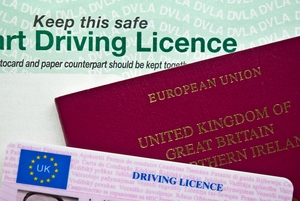 The launch of the General Data Protection Regulation by the European Union was something that made complete sense, yet at the same time ended up driving people mad. Often referred to by its acronym of GDPR, the legislation was put in place in order to protect the personal information of customers of businesses that either operate in the EU or else do so in an EU-facing environment.
The launch of the General Data Protection Regulation by the European Union was something that made complete sense, yet at the same time ended up driving people mad. Often referred to by its acronym of GDPR, the legislation was put in place in order to protect the personal information of customers of businesses that either operate in the EU or else do so in an EU-facing environment.
Any company, large or small, holding the data of a European resident has needed to comply with GDPR rules since the 25th of May 2018. Any GDPR failings can be hit with huge fines, which is why companies were so hot on it when it initially came into effect. Whether it be the data of employees working for them or the information of customers, GDPR has affected all companies, including those in the betting industry.
What Are The GDPR Rules?
 Before GDPR rules were introduced, the laws and legislation around the protection of customers was not good. This would often result in companies abusing the personal data of their customers, such as selling it to other businesses or failing to protect it in any meaningful manner. With some claiming that personal information was worth more than oil, the European Union decided it was right to protect it.
Before GDPR rules were introduced, the laws and legislation around the protection of customers was not good. This would often result in companies abusing the personal data of their customers, such as selling it to other businesses or failing to protect it in any meaningful manner. With some claiming that personal information was worth more than oil, the European Union decided it was right to protect it.
Prior to GDPR rules coming about as a concept, it was common for businesses to bundle consent for the use of your data in with something else. You might sign up for a newsletter, for example, and hidden with the terms and conditions of that was permission for the company creating the newsletter to send you irrelevant promotions or to look through your web data to see if there was anything else in there that they found interesting.
GDPR was brought in in order to stop that sort of thing from happening, with companies now required to specifically ask you for consent to use your personal data. Not only that, but they can’t use tricky language to get your consent either, instead having to make sure that everything is clearly laid out and easy to understand. At the heart of the rules lie some even more sensitive data, which is given a greater sense of protection by the laws.
What Do They Know About Me?
 One of the key ways of thinking about GDPR rules is to imagine that what they do is put you back in charge of your own data. Not only do companies have to specifically request if they wish to use your data and explain how they’ll use it, but at any moment you can request a copy of the personal data that a company holds on you. This is thanks to the right of access that is provided as part of the GDPR process.
One of the key ways of thinking about GDPR rules is to imagine that what they do is put you back in charge of your own data. Not only do companies have to specifically request if they wish to use your data and explain how they’ll use it, but at any moment you can request a copy of the personal data that a company holds on you. This is thanks to the right of access that is provided as part of the GDPR process.
As a result of this, you’re able to access the data that companies hold on you and also limit any such access as you see fit. You can also transfer data to another service provider, meaning that you don’t have to go through many of the processes all over again. Instead you can effectively port the information from one provider to another that you believe will more inline with what it is that you’re looking for from a gambling provider.
The Money Laundering Regulations that were introduced in 2017 brought in the Know Your Customer scheme. This was designed to stop underage customers from being able to have an online gambling account, as well as to make it difficult for people to engage in money laundering practices. As a result, it’s common for gambling companies to obtain the following information on their customers:
- Post Code
- House Number
- Date Of Birth
- Recent Addresses
It’s usual for them to ask for identification so that a customer can prove that they are who they say they are. The likes of driving licences, passports and a recent bank statement will often be asked for. This all has to be well-protected by the gambling company or companies that you choose to sign up with and it is necessary to provide them with it in order to open an account in the first place.
Erasing Your Online History
 The other thing that changes brought about by GDPR has given customers is the ability to erase their online history. You can actively choose to effectively be ‘forgotten’ by a company and have your information removed from their website, should that be something that you wish to do. Given that companies keep hold of all sort of information when you allow them to, this will give people the opportunity to have a clean slate.
The other thing that changes brought about by GDPR has given customers is the ability to erase their online history. You can actively choose to effectively be ‘forgotten’ by a company and have your information removed from their website, should that be something that you wish to do. Given that companies keep hold of all sort of information when you allow them to, this will give people the opportunity to have a clean slate.
The one thing to bear in mind, though, is the fact that this won’t always work in your favour. A company that knows what your favourite game is, as an example, can offer you bonus credit on it every now and then, or let you know about a special offer that is on for that game. If you remove your personal data from them then they will be unable to do that, which might leave you missing out on things that you’d quite like.
Criticism Of Gambling Companies Over GDPR
 Those that are critical of the gambling industry believe that its handling of GDPR is not as good as it should be. Justice For Punters, for example, is an organisation that looks to take the betting industry to task when it fails in its responsibilities. The organisation has been unhappy with the manner in which certain companies have ridden roughshod over the GDPR rules, hiding language in their ‘privacy policies’.
Those that are critical of the gambling industry believe that its handling of GDPR is not as good as it should be. Justice For Punters, for example, is an organisation that looks to take the betting industry to task when it fails in its responsibilities. The organisation has been unhappy with the manner in which certain companies have ridden roughshod over the GDPR rules, hiding language in their ‘privacy policies’.
It is the belief of Justice For Punters that companies will look to make it extremely difficult for customers to erase their data and even stop them from getting access to the data that they hold on them. Whether that is true or not remains to be seen, but if you have attempted to erase your data and been given some pushback from the company involved then it might be worth getting in touch with Justice For Punters to explain your experience.
